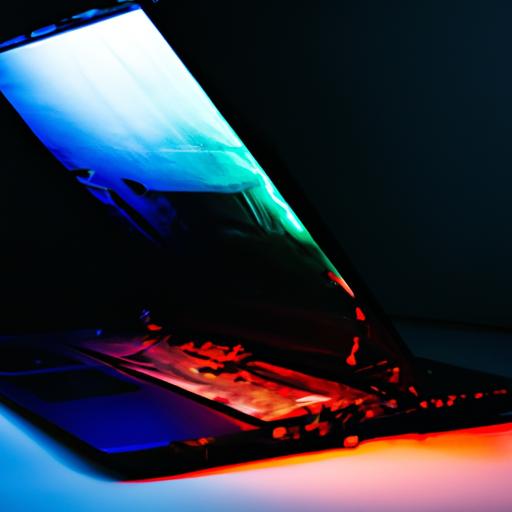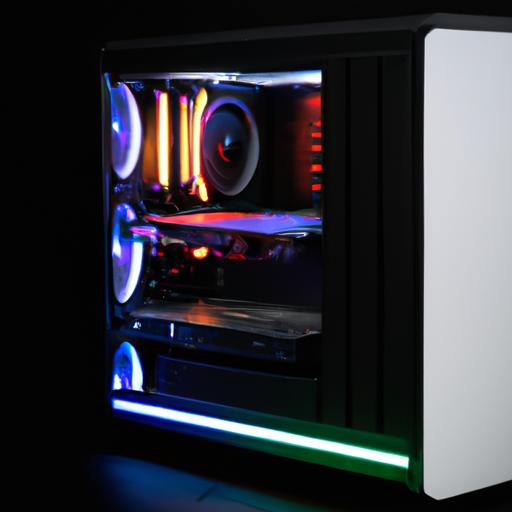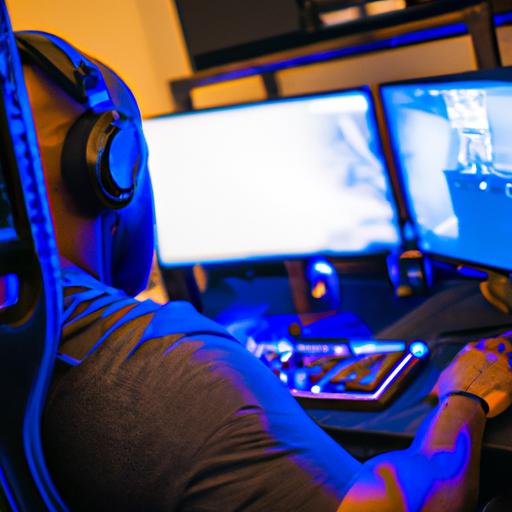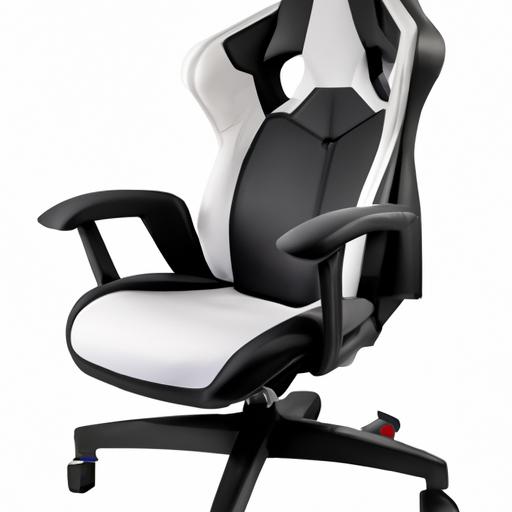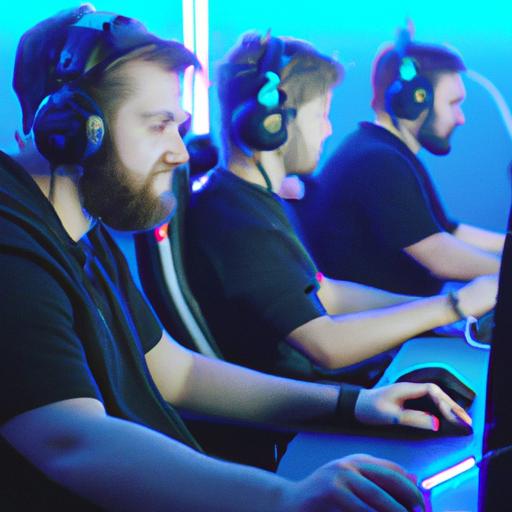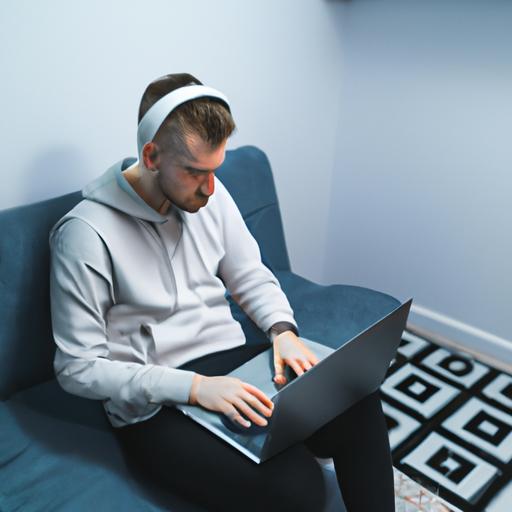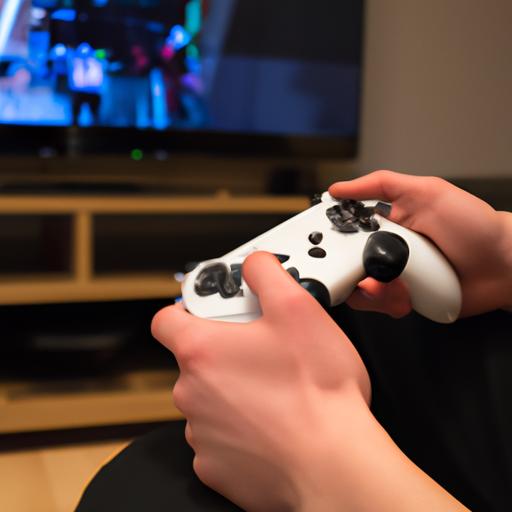Do Gaming Laptops Overheat?
Gaming laptops have revolutionized the way we experience immersive gameplay, offering portability without compromising performance. These powerful machines pack a punch with their high-performance hardware components, allowing us to dive into the virtual world with astounding visuals and smooth gameplay. However, there is a common concern that plagues many gamers – overheating. In this article, we will explore the reasons behind gaming laptop overheating and the importance of addressing this issue for optimal gaming experiences.
A Definition of Gaming Laptops
Before we delve into the world of gaming laptop overheating, let’s understand what exactly constitutes a gaming laptop. Unlike their traditional counterparts, gaming laptops are specifically designed to handle the demanding requirements of modern gaming. They come equipped with robust graphics cards, high-capacity RAM, and powerful processors, ensuring a seamless gaming experience even with resource-intensive games. However, these components generate a significant amount of heat during operation, leading to potential overheating issues.
The Importance of Addressing Overheating Issues in Gaming Laptops
Overheating is a critical concern that can adversely affect both the performance and longevity of your gaming laptop. When temperatures soar beyond the recommended threshold, the hardware components may begin to throttle, resulting in decreased performance and frustrating gameplay experiences. Moreover, constant exposure to excessive heat can significantly reduce the lifespan of your gaming laptop, leading to costly repairs or even the need for a replacement.
As an avid gamer, it is essential to address overheating issues in your gaming laptop to ensure uninterrupted gaming sessions and protect your investment. By taking proactive measures to mitigate overheating risks, you can optimize your gaming laptop’s performance, extend its lifespan, and indulge in the immersive gaming experiences you crave.
Now that we understand the significance of addressing gaming laptop overheating, let’s explore the factors that contribute to this issue and how to identify the signs of overheating in Section
Understanding Gaming Laptop Overheating
Gaming laptops, with their powerful hardware and capability to handle resource-intensive games, are more prone to overheating compared to regular laptops. To address this issue effectively, it is crucial to understand the factors that contribute to gaming laptop overheating and the impact it can have on both performance and longevity.
A. Factors Contributing to Overheating in Gaming Laptops
-
High-performance hardware components: Gaming laptops are equipped with top-of-the-line hardware, including high-performance processors and graphics cards. These components generate a significant amount of heat during operation, especially when running demanding games that push them to their limits.
-
Intense gaming sessions: Gamers often engage in extended gaming sessions, pushing their laptops to perform at maximum capacity for hours on end. This continuous usage puts a tremendous strain on the hardware, resulting in increased heat generation.
-
Inadequate cooling systems: While gaming laptops are designed to handle the heat generated by their powerful components, some models may have inadequate cooling systems. Insufficient cooling can lead to inefficient heat dissipation, causing temperatures to rise rapidly within the laptop.
B. Impact of Overheating on Gaming Laptop Performance and Longevity
Overheating can have severe consequences for both the performance and longevity of your gaming laptop. When temperatures exceed the recommended thresholds, the hardware components may throttle their performance to prevent damage. This can result in decreased frame rates, laggy gameplay, and overall poor gaming experiences.
Furthermore, long-term exposure to excessive heat can cause permanent damage to the internal components of your gaming laptop. Overheating can lead to the degradation of the thermal paste, which is responsible for transferring heat from the components to the cooling system. As a result, the cooling efficiency decreases, and the risk of hardware failure increases.
Understanding the various factors contributing to gaming laptop overheating and its detrimental effects on performance and longevity is crucial. In the next section, we will explore the signs that indicate your gaming laptop is overheating and needs attention.
Signs of Overheating in Gaming Laptops
Frequent System Crashes or Unexpected Shutdowns
One of the telltale signs that your gaming laptop may be overheating is the occurrence of frequent system crashes or unexpected shutdowns during gameplay. When the internal temperature surpasses safe levels, the laptop’s built-in safety mechanisms kick in, causing it to shut down abruptly to prevent any potential damage. These unexpected shutdowns can disrupt your gaming sessions and lead to frustration and loss of progress. If you find yourself experiencing regular crashes, it’s crucial to investigate the possibility of overheating.
Excessive Fan Noise or Overheating Sensations
Another noticeable indicator of gaming laptop overheating is excessive fan noise or overheating sensations. As the hardware components work harder to deliver optimal gaming performance, the cooling system kicks into overdrive, resulting in louder fan noises. Additionally, you may feel intense heat emanating from the laptop, particularly near the keyboard or exhaust vents. These physical sensations are clear signs that your gaming laptop is struggling to dissipate heat efficiently, and immediate attention is necessary to prevent further complications.
Sluggish Performance During Gameplay
If you notice a decline in your gaming laptop’s performance during gameplay, it could be a red flag indicating overheating issues. Overheating can cause the hardware components to throttle, reducing their processing power and resulting in sluggish performance. You may experience lag, frame rate drops, or even freezing screens, significantly impacting your gaming experience. If your once-smooth gameplay becomes choppy and unresponsive, it’s essential to investigate whether overheating is the culprit.
Identifying these signs of overheating is pivotal in addressing the issue promptly. In the following section, we will discuss preventative measures to avoid overheating in gaming laptops, ensuring uninterrupted gaming sessions and safeguarding your investment.
Preventative Measures to Avoid Overheating
A. Regularly clean and maintain the laptop’s cooling system
One of the fundamental steps to prevent overheating in gaming laptops is to ensure the cooling system remains clean and well-maintained. Over time, dust and debris can accumulate in the laptop’s vents, obstructing airflow and causing heat to build up. Regularly cleaning the vents and fans of your gaming laptop can significantly improve its cooling efficiency. Use compressed air or a soft brush to gently remove any dust or debris, taking care not to damage any internal components. By keeping the cooling system clean, you can help dissipate heat more effectively and reduce the risk of overheating.
B. Optimize software and hardware settings for better heat management
Optimizing the software and hardware settings of your gaming laptop is another effective strategy to prevent overheating. Start by ensuring your operating system and drivers are up to date to benefit from any performance-enhancing updates. Additionally, you can adjust power settings to prioritize better heat management. Lowering the maximum processor state or setting a power plan specifically tailored for gaming can help regulate the heat generated. Moreover, consider closing unnecessary background applications and processes that may strain your laptop’s resources and increase heat production.
C. Use cooling pads or external fans to enhance airflow
To further enhance the cooling capabilities of your gaming laptop, consider investing in a cooling pad or external fans. Cooling pads are designed to provide additional airflow to the laptop, minimizing heat buildup. Look for a cooling pad with adjustable fan speeds and ergonomic design for optimal comfort during extended gaming sessions. Alternatively, external fans can be placed near the laptop’s vents to improve air circulation. These accessories can significantly reduce the temperature of your gaming laptop and mitigate the risk of overheating.
D. Avoid blocking the laptop’s vents
While it may seem obvious, it is crucial to ensure that you do not inadvertently block the vents of your gaming laptop. Many users unknowingly obstruct airflow by placing their laptops on soft surfaces like beds or cushions. This restricts the ventilation and hampers the cooling system’s efficiency, leading to overheating. Always place your laptop on a flat, hard surface that allows proper airflow. Additionally, be mindful of any objects that may cover the vents, such as papers or fabric. By keeping the vents unobstructed, you can optimize the cooling capabilities of your gaming laptop.
Implementing these preventative measures can significantly reduce the risk of overheating in your gaming laptop. However, if you are still experiencing overheating issues, it may be necessary to explore additional cooling solutions, which will be discussed in Section
Section V: Cooling Solutions for Gaming Laptops
A. Undervolting and Underclocking Techniques
One effective cooling solution for gaming laptops is undervolting and underclocking. Undervolting involves reducing the amount of voltage supplied to the CPU, GPU, and other components, resulting in lower power consumption and reduced heat generation. This technique can be performed through specialized software or BIOS settings, allowing you to strike a balance between performance and temperature.
Similarly, underclocking involves reducing the clock speed of your laptop’s components. By lowering the clock speed, you can decrease the workload on the hardware, thereby reducing heat production. While underclocking may result in a slight decrease in performance, it can significantly improve the thermal efficiency of your gaming laptop.
B. Upgrading the Laptop’s Cooling System
If your gaming laptop is still struggling with overheating issues, you may consider upgrading its cooling system. This can involve replacing the stock cooling fans with more efficient and high-performance alternatives. Additionally, you may opt for aftermarket cooling pads that enhance airflow and heat dissipation. These cooling solutions work in tandem to maintain lower temperatures during intense gaming sessions, ensuring optimal performance and longevity for your gaming laptop.
C. Thermal Paste Replacement
Over time, the thermal paste between your gaming laptop’s CPU and GPU and their respective cooling solutions can degrade, leading to decreased thermal conductivity. This can result in inefficient heat transfer and increased temperatures. By replacing the thermal paste with a high-quality and thermally conductive alternative, you can restore optimal heat dissipation and prevent overheating.
D. Additional Cooling Accessories
In addition to the above solutions, there are various cooling accessories available that can further enhance the cooling capabilities of your gaming laptop. These accessories include laptop cooling pads with built-in fans, laptop vacuum coolers, and laptop cooling stands. These accessories help improve airflow and dissipate heat more effectively, reducing the risk of overheating during extended gaming sessions.
Implementing these cooling solutions can significantly improve the thermal performance of your gaming laptop, allowing you to enjoy long gaming sessions without the worry of overheating. However, it is crucial to ensure that you follow manufacturer guidelines and seek professional assistance if needed to avoid any damage to your laptop during the cooling solution implementation process.
Stay tuned for the conclusion in Section VI, where we summarize the importance of addressing gaming laptop overheating issues and provide final recommendations for efficient gaming laptop usage.
Conclusion
In conclusion, it is evident that overheating is a pressing concern for gaming laptops. These powerful machines, designed to deliver exceptional gaming experiences, often struggle to manage the heat generated by their high-performance components. Neglecting the issue can lead to decreased performance, frequent crashes, and even permanent damage to the hardware.
To ensure optimal performance and longevity of your gaming laptop, it is crucial to take preventive measures and implement effective cooling solutions. Regularly cleaning and maintaining the cooling system, optimizing software and hardware settings, and utilizing cooling accessories are all essential steps in combating overheating. By addressing this issue head-on, you can enjoy uninterrupted gameplay and protect your investment.
Remember, a well-cooled gaming laptop not only enhances your gaming experience but also contributes to the overall lifespan of your device. Don’t let overheating hinder your gaming adventures. Take the necessary steps to keep your gaming laptop cool and unleash its full potential.
In conclusion, prioritize the health of your gaming laptop and take proactive measures to prevent overheating. By doing so, you can ensure optimal performance, extend the lifespan of your device, and immerse yourself in the thrilling world of gaming without any interruptions.
Now that you are equipped with the knowledge to combat gaming laptop overheating, go forth and conquer the virtual realms with confidence!
Note: This article is for informational purposes only and does not constitute professional advice. Always consult your manufacturer’s guidelines and seek assistance from professionals if you encounter severe overheating issues.
